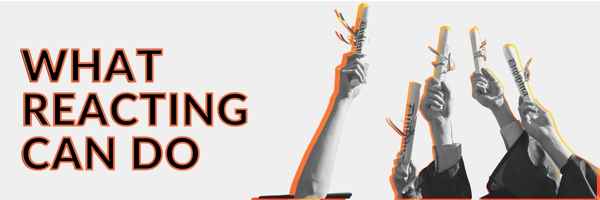
By: Noah Trujillo
Digital Resource Coordinator
The Reacting Consortium
Hello everyone, my name is Noah Trujillo and in August I was hired to manage the website and our digital game resources. You may have already met me if you updated a game or had an issue with the site in the past couple of months. I wanted to take this opportunity to introduce myself and offer some perspective on what Reacting games can mean to your students. I had the pleasure of attending an institution where Reacting games were embraced and integrated by its history department which meant I got to experience tons of Reacting games. In the Spring of this year, I graduated from Simpson College with a degree in History and Political Science. I plan on pursuing a graduate program in History, but right now I’m taking a gap year. I have a lot of fond memories from my alma mater, but my most vivid memories have come from playing Reacting games.
When I first got to college, I already had my next four years planned out. I would major in political science and focus on nothing but politics. The proximity to the Iowa caucuses was the main reason that I chose to leave the beautiful Colorado Rockies for the Midwest. But over time my devotion for politics was replaced with a love for history mainly because of the Reacting to the Past games that were ingrained in most of the history classes at my institution. I owe a lot to these games, they've made me more empathetic, creative, a better speaker, and a stronger writer.
My first and most memorable Reacting experience didn't actually come from a Reacting to the Past game. It was actually during a semester-long orientation class led by Nick Proctor that showed me what role-playing in the classroom could look like and how much fun it could be. The class was called "The Galactic Senate'' and stood in stark contrast to the other orientation classes, which followed the usual lecture or discussion format. Instead, Proctor's course had us taking part in a mock Senate filled with fictional representatives from the Star Wars universe. It was incredible. Every day we would come in, in character, and pretend to debate different issues straight out of science fiction. Anything from deciding the rights of robots and AI to the legality of highly addictive spices or even the fate of entire planets. I had some of the best moments in my college experience during that class, mainly because we, as students, got to really decide how each day would go. Despite being a gen-ed class I spent more time thinking about the Galactic Senate than I did in any other class, including the classes in my major. I remember spending hours drafting proposals or arguments for this mock senate and staying up at night thinking about what the next day's session could bring. At the end of the semester, I signed up for two history classes because they also used role playing games as teaching tools.
I'll never forget playing my first game, which was set during the French Revolution. How after reading primary sources for a week, hearing that role sheets were being handed how the class would suddenly get quiet. And how that quiet anxiety would turn into relief and excitement after I got my role sheet, with my mind abuzz thinking about how the game would play out and what strategies I would employ to try and win. And then experiencing the actual game with all of the action and chaos. Once again, I would spend hours writing articles, rehearsing speeches, and cajoling other players for votes. Despite being graded, it never felt like work and was actually quite fun.
So, I ended up taking more history classes so I could experience different games. I ended up being able to play seven different games in total, with the majority of them being in my first two years at Simpson College. By the time I reached my junior year the games started to become replaced with more traditional forms of research and learning. But I was still excited to go to class because at that point I was hooked on studying history. Reacting had shown me a side of myself that I didn't know existed and allowed a deep appreciation and love for history to flourish. By the end of my undergraduate experience, I had gone from a student solely focused on studying politics and who had based his college choice on its proximity to the Iowa caucuses to considering myself a History major first and taking political science classes as more of an afterthought. In all of my years as a History major, even when I was taking three four-credit history classes in a single semester, it never got boring. I think that if I didn't experience Reacting to the Past games at the beginning of my college experience, I would have never pursued history as anything more than a passing interest. The part of me that thoroughly enjoys studying history would have remained dormant and I definitely would be less fulfilled.
I owe a lot to Reacting games and the tremendous instructors who made them come alive, which is why I'm very excited to be able to help make these materials more accessible. I am always astounded by the amount of thought and effort that I see on the Facebook Reacting Lounge or in the constantly updated game files. In case you don't hear it enough, the effort that you put in is incredibly important. Take it from me, Reacting games are doing incredible things for your students and the energy that you spend making their experience better do not go unnoticed.
If you ever have any questions or concerns about the website, please feel free to email me at noahtrujillo77@gmail.com.
About the Author
Noah Trujillo serves as the digital assets coordinator for the Reacting Consortium. He earned a bachelor’s degree in History and Political Science from Simpson College in 2022. Right now, he is taking a gap year but intends to pursue a graduate program in History. Noah currently floats around between Littleton, Colorado and Austin, Texas.
Blog Author Questionnaire
One word to describe faculty: Dedicated
Two words to describe your school: Faculty Carries
Three words to describe students: Empathetic, Hesitant, Scheming
Four words to describe your favorite games: Reward Creativity, Chaotic, Focused
Five words to describe Reacting: Tricks Students into Actually Reading


